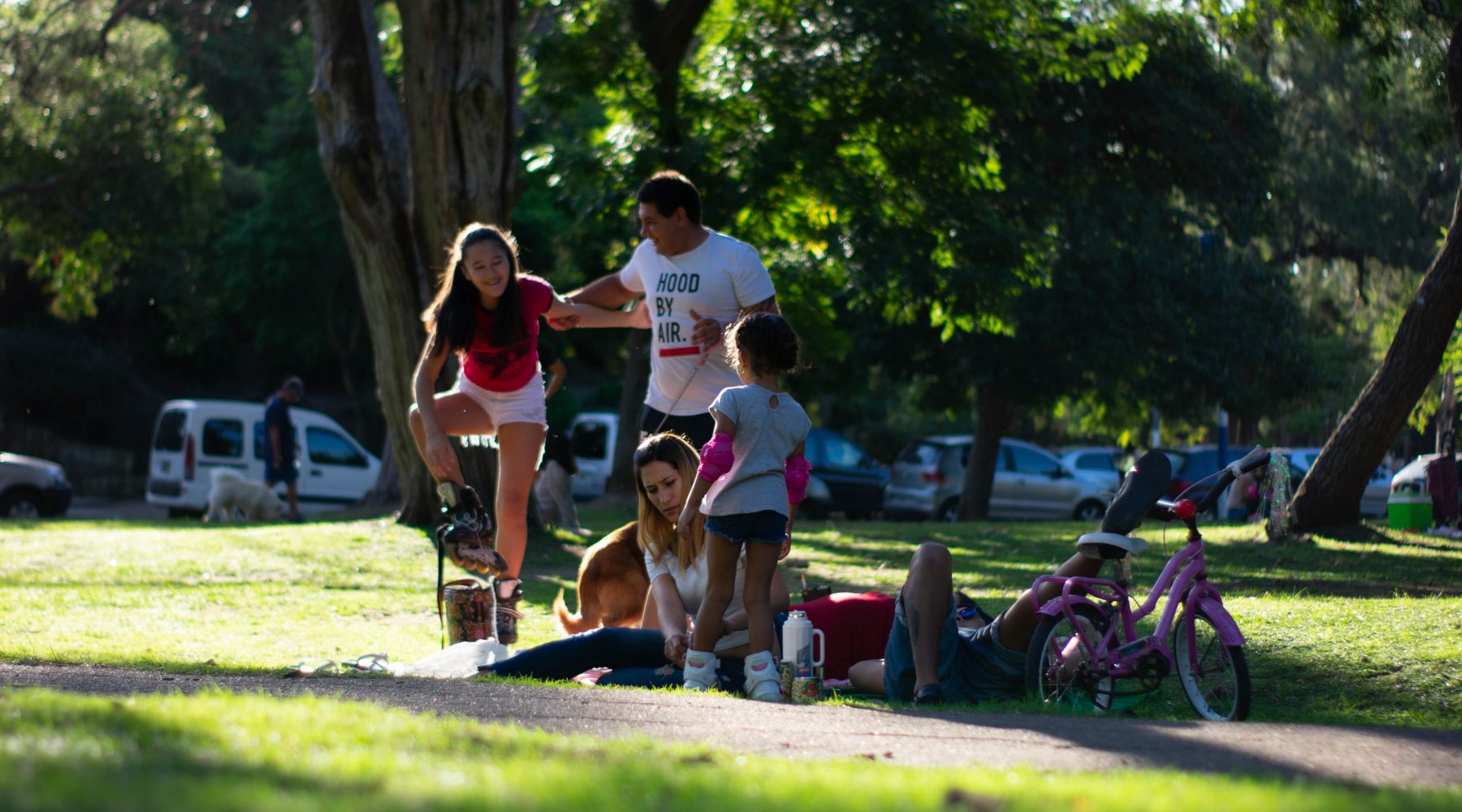Play helps parents too, but finding time and space is challenging – how can ECEC help?

Deakin University researcher Dr Jill Hnatiuk has completed a qualitative study looking at the barriers to ‘co-participation’, where parents and children get active together, exploring what helps and hinders Australian parents participating in physical activity with their children, aged between two to four years of age, finding opportunities for early childhood education and care (ECEC) services to support families to overcome barriers.
Parents, she said, are aware that being active with their children helps them to achieve the best outcomes for future health. Co-participation has been shown to improve children’s and parents’ physical activity levels, as well as improve broader aspects of family relationships.
“The major benefits are that families spend quality time together, improve children’s general health and wellbeing, and develop their physical skills” she added, saying the work particularly explored children aged between two and four years because “they tend to spend the most time with their parents.”
“It’s a rapid period of development and early childhood is a critical time for establishing physical activity habits.”
While children between the ages of two and four years are thought of as being “very active” evidence showed only one in three were meeting the Australian Department of Health’s physical activity recommendations by the start of primary school.
“For parents it’s an important stage too. Evidence shows parents of children under six are 69 per cent less likely to meet the health department’s physical activity targets compared to their peers without children,” Dr Hnatiuk said.
“Physical inactivity often coexists within families, with children of inactive parents six times less likely to engage in an optimal amount of physical activity. These similarities are present even at a young age, as two to three-year-old children’s physical activity patterns have been found to mirror that of their parents.”
As part of her study in Health Promotion International Dr Hnatiuk interviewed Western Sydney parents about what they saw as the barriers and facilitators to engaging in physical activity with their children.
Small or no backyards, living on a busy road, or having a home without much space were some of the major discouragements. Families who had large spaces to play indoors, backyards with grass and shaded areas big enough to accommodate active play, living on a quiet street or who owned a pet were more likely to be physically active with their children.
Fewer families have access to what Dr Hnatiuk termed “the suburban dream.”
In Sydney, a third of households are living in rental accommodation due to affordability considerations, and more and more young families are living in apartments, with similar housing issues across Australia.
“It’s well established that the practice of renting versus owning a home in Australia can impact on various aspects of psychosocial wellbeing, but very little work has focussed on understanding the role it might play in health behaviour like physical activity” she added.
A number of the barriers identified by parents are quite complex and really dependent on a number of contextual factors. For example small yards on a quiet street did not appear to be a barrier but small yards on a busy road did, Dr Hnatiuk said.
“Access to parks with a good range of equipment, as well as facilities and services like swimming pools and play groups, were also important.”
A deeper understanding of the key barriers to co-participation would help develop programs and public health messages that could be tailored accordingly. Families, she continued, also need better facilities and support to encourage physical activity, as up to this point comparatively few physical activity initiatives have targeted families with young children, despite the known benefits.
To read more about Dr Hnatiuk’s work, please see here.
Popular

Practice
Provider
Quality
Research
Workforce
New activity booklet supports everyday conversations to keep children safe
2025-07-10 09:00:16
by Fiona Alston

Quality
Practice
Provider
Research
Workforce
Honouring the quiet magic of early childhood
2025-07-11 09:15:00
by Fiona Alston

Quality
Practice
Provider
Workforce
Reclaiming Joy: Why connection, curiosity and care still matter in early childhood education
2025-07-09 10:00:07
by Fiona Alston












